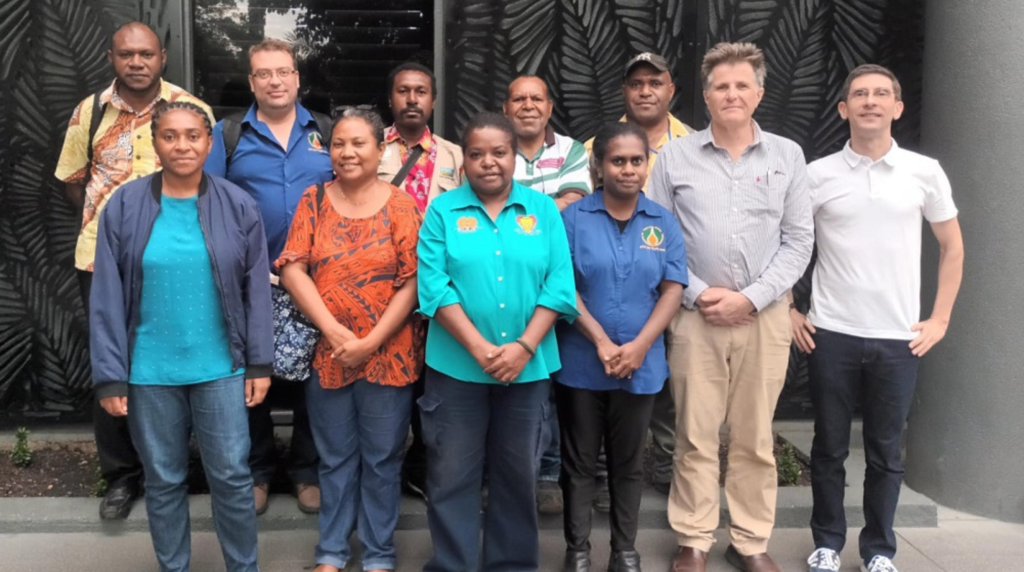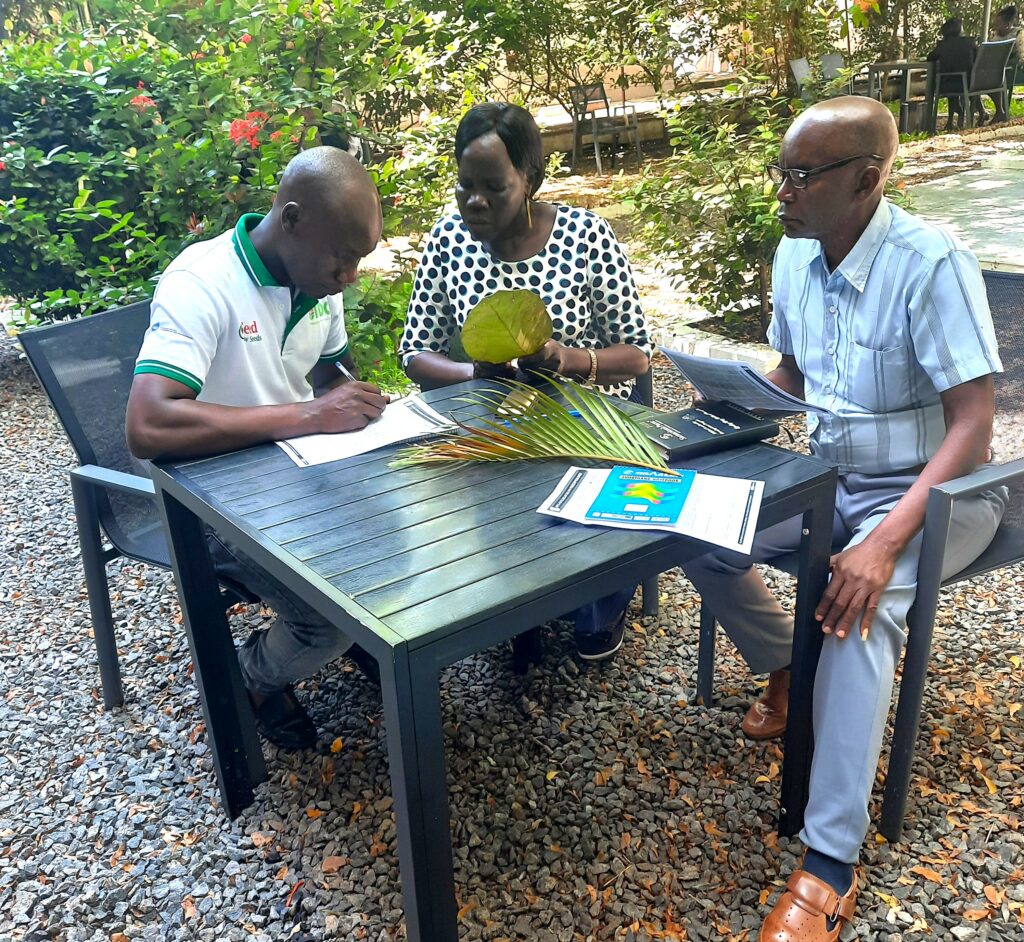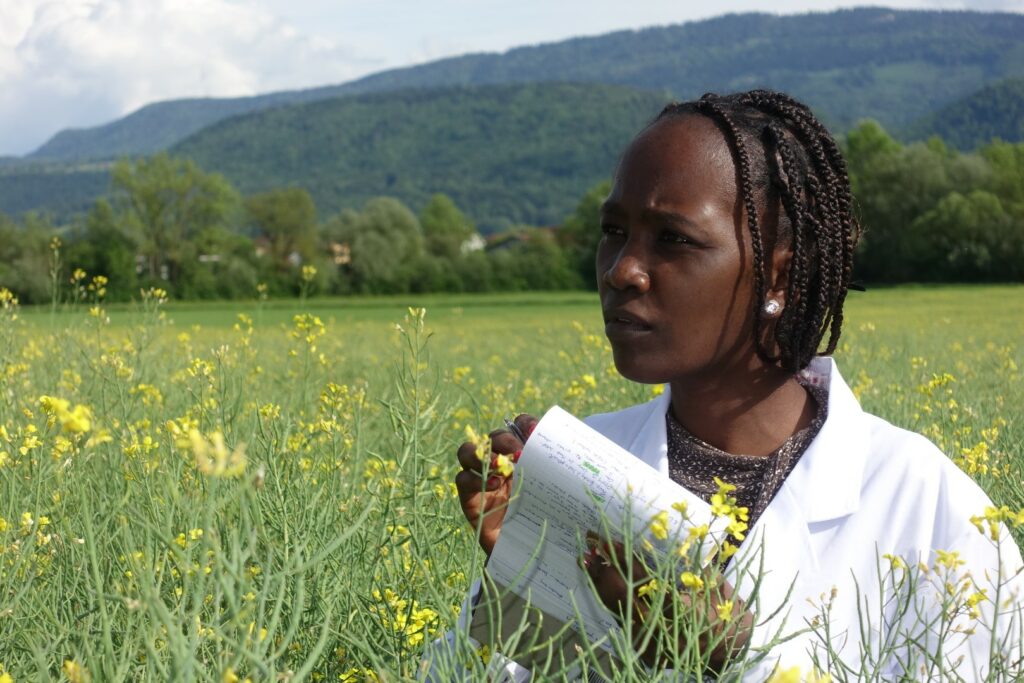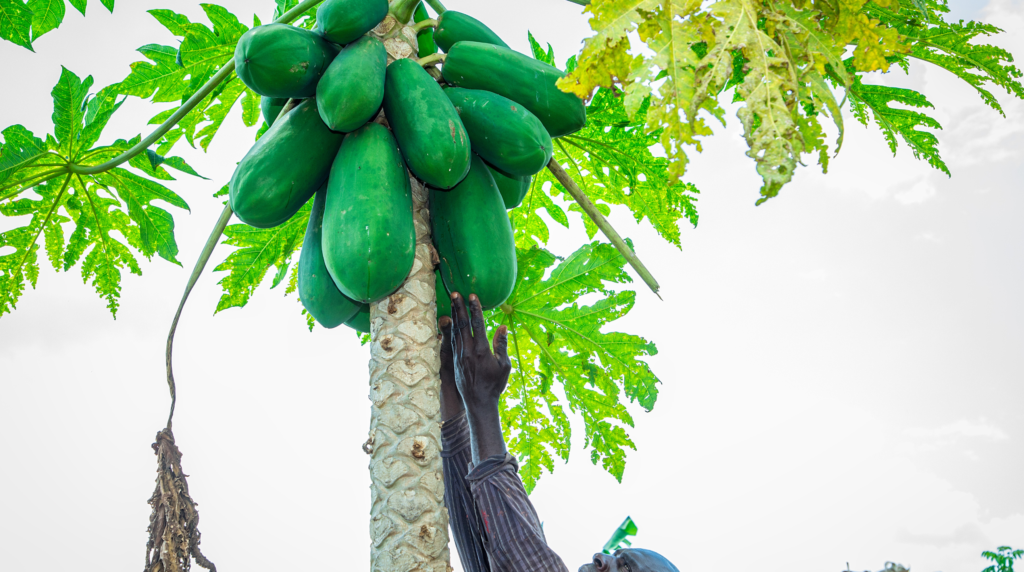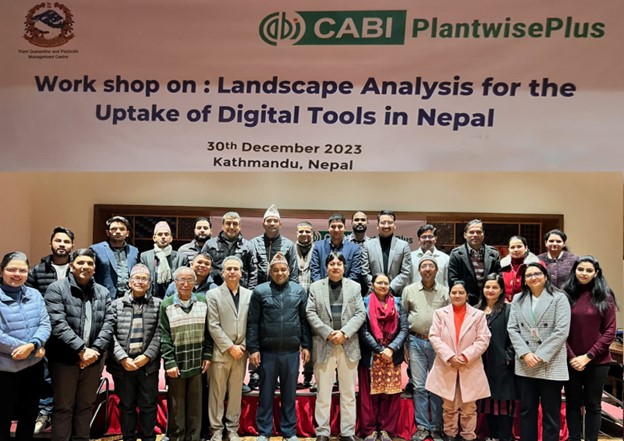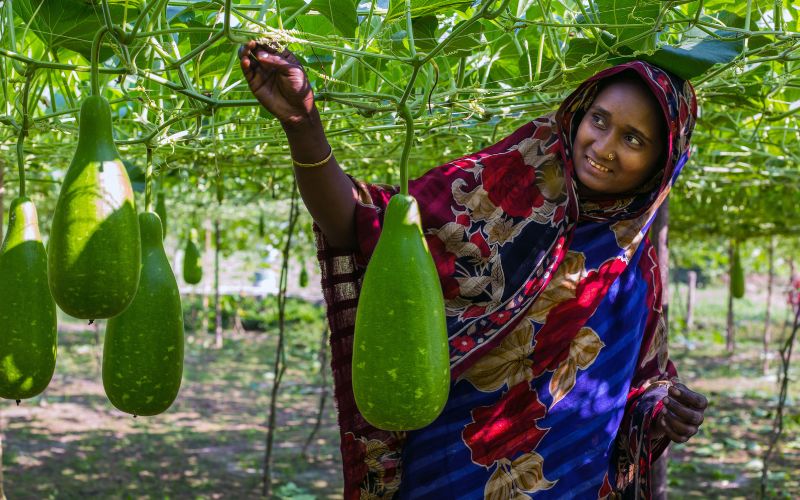Bridging the gender digital divide in Ghana
The gender digital divide is impacting women’s access and use of digital agricultural tools. In recent years, there has been significant growth in digital technologies aimed at farmers and farmer advisors. These technologies offer opportunities for growth and development by boosting the reach of agricultural knowledge, services, and support. However, as with face-to-face agricultural advisory…
Empowering women farmers with digital tools in India
In India, 59 per cent of women work in agriculture. This workforce is vital to the country’s rural economy, with women performing many of the big farming jobs, such as planting, weeding, tending, and harvesting crops.
PlantwisePlus delivers plant health ‘training of trainers’ in South Sudan
South Sudan’s agricultural sector is vital to its economy and employs most of the population. The FAO estimates that up to 95% of South Sudan relies on agriculture for income. Diverse crops like cassava, maize, groundnut and sorghum characterize farming here. However, agriculture in this East African nation faces challenges. Climate change and global warming,…
What is Integrated Crop Management?
Integrated Crop Management (ICM) is a holistic and sustainable approach to farming, focusing on optimizing resources, reducing input costs and promoting long-term soil health. As such, integrated crop management enables farmers to boost crop productivity while minimizing environmental impact. In this blog post, we explore the fundamental principles of Integrated Crop Management and how it…
How a tiny wasp can save the livelihoods of papaya farmers
“We have a problem with the attack of mealybugs, which are becoming a menace to the production of papayas. I fight them, but they are also fighting back.” Ben is a farmer in Machakos County, Kenya, east of the nation’s capital, Nairobi.
Digital innovation: integrating PlantwisePlus digital tools in Bangladesh
PlantwisePlus is developing and updating various digital tools for decision support and learning. In Bangladesh, these digital decision-support tools enable farmer advisors to serve farmers more effectively.


